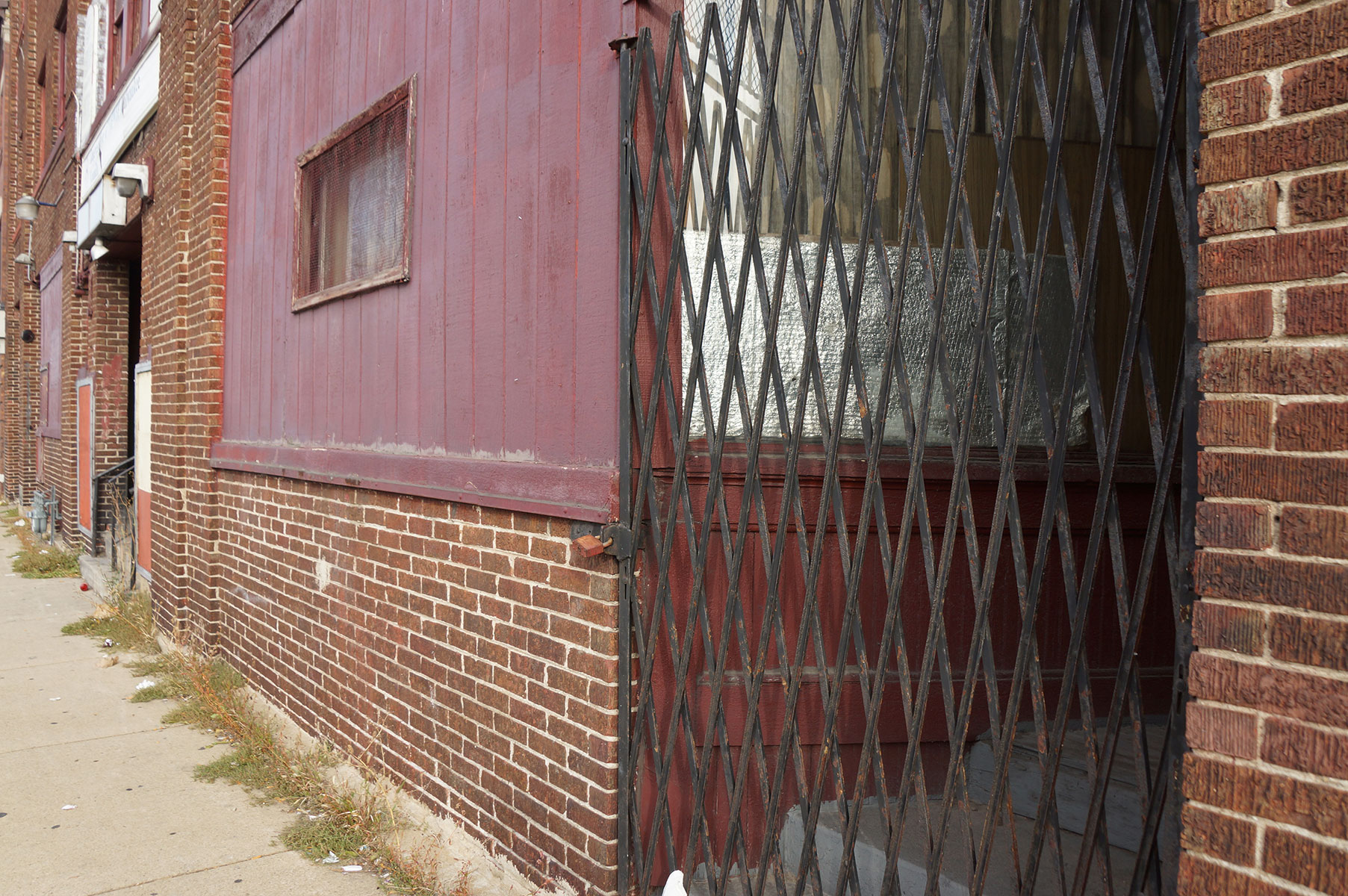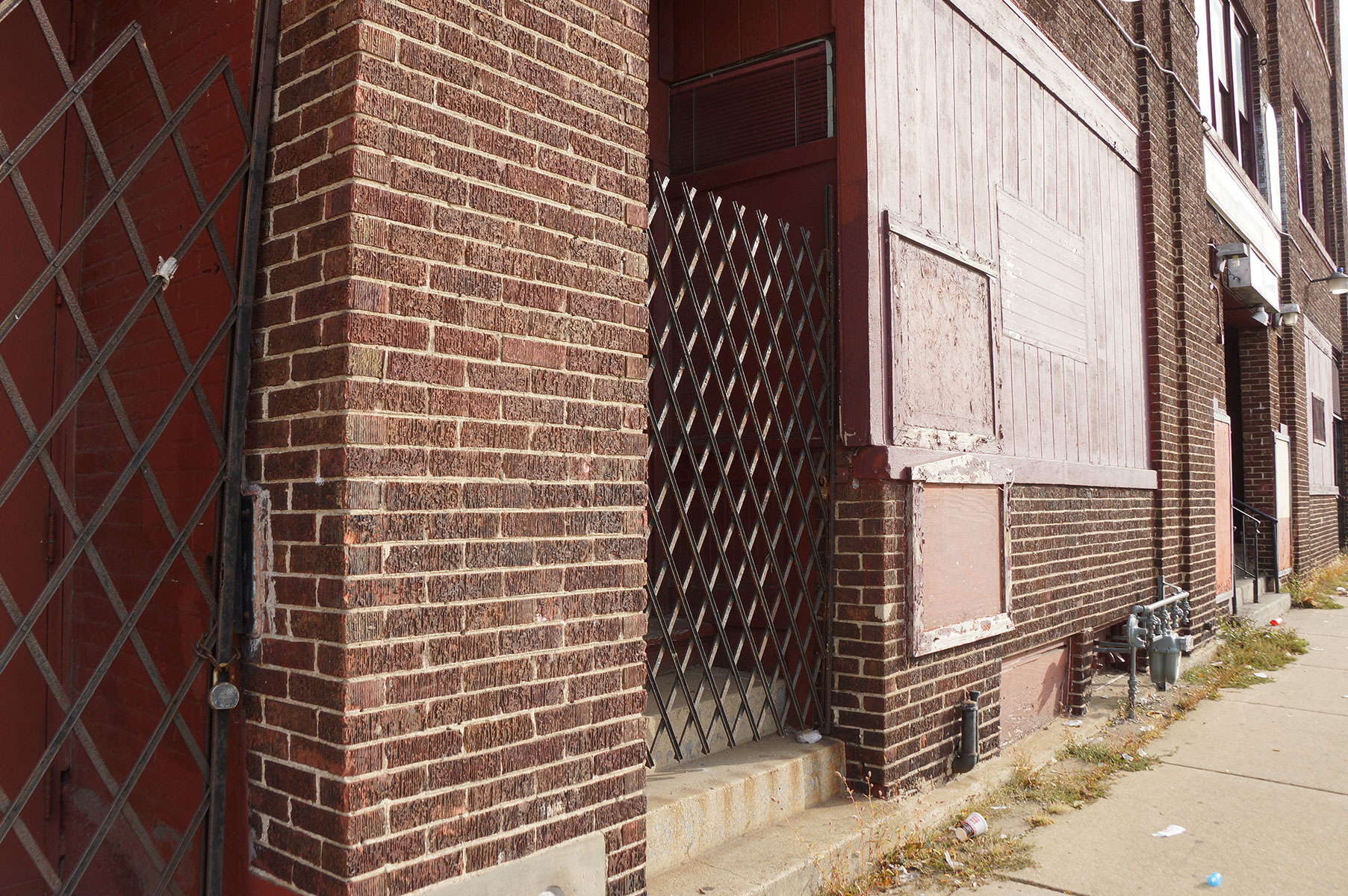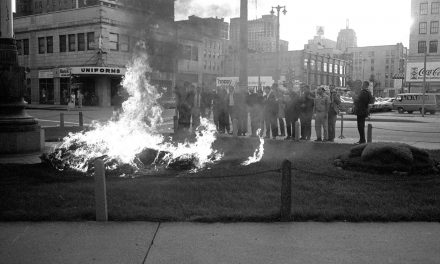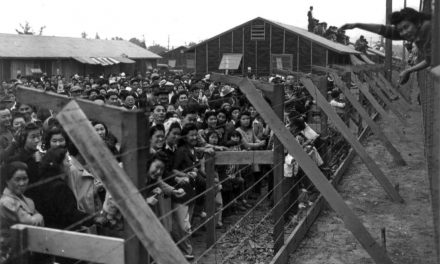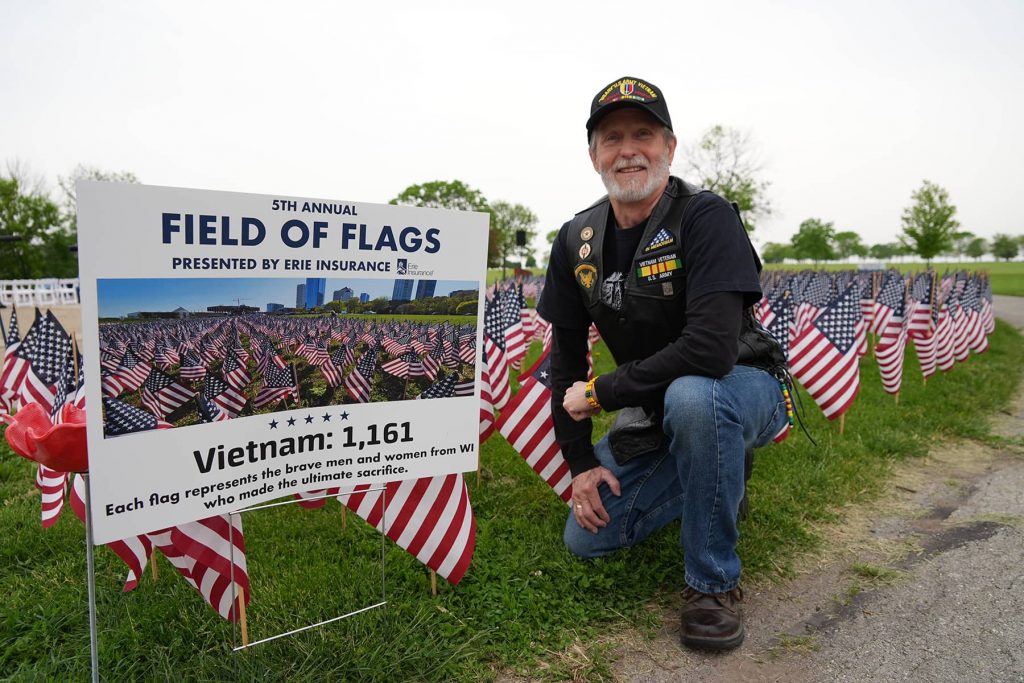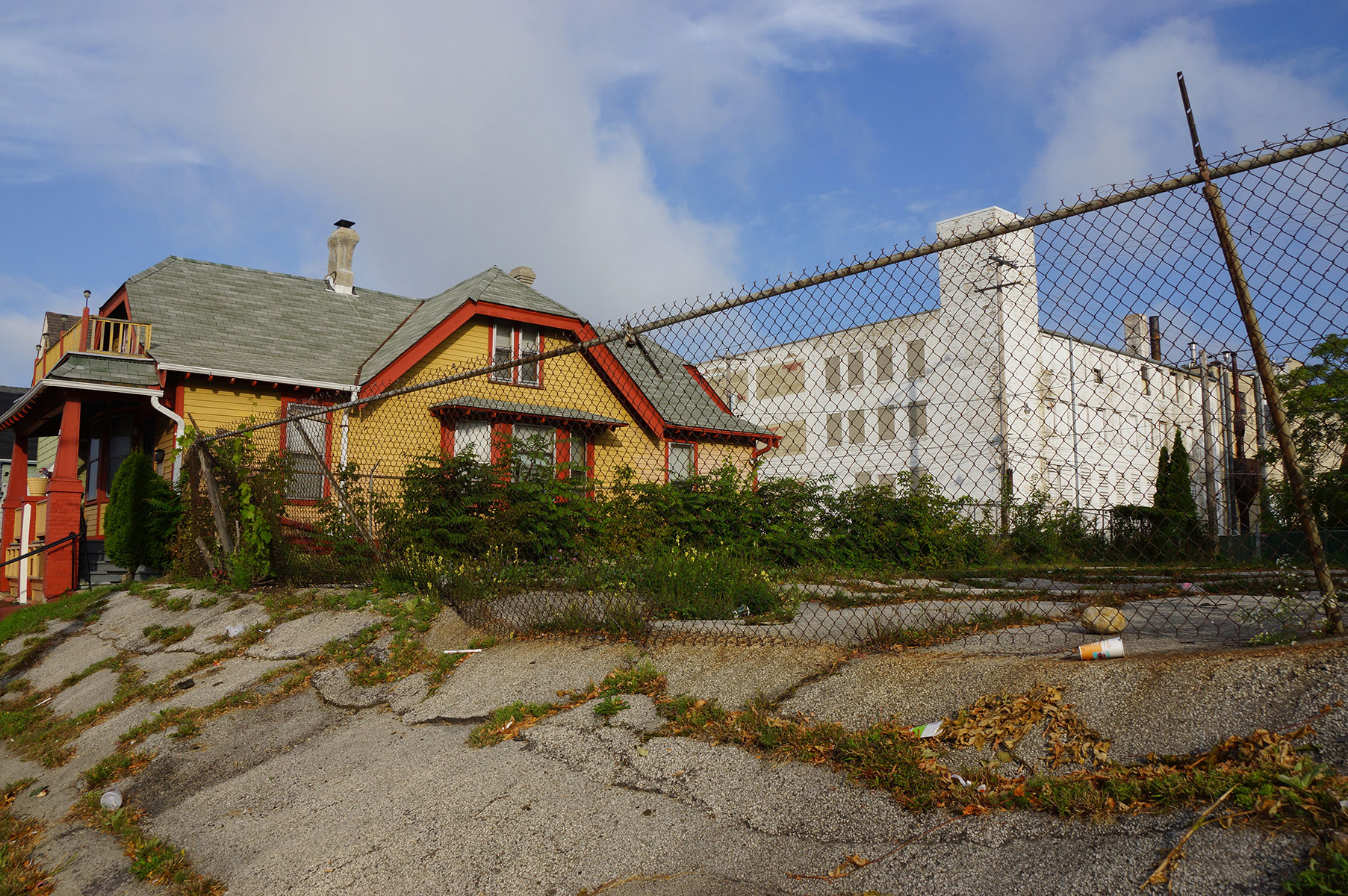
I just returned to what I consider to be home, Brooklyn, after spending just over a week in Milwaukee. Milwaukee is where I spent most of my childhood, but I haven’t called it home for years.
Milwaukee is considered to be one of the most segregated cities in America, where close to 60% of the residents identify as black or Latino. Milwaukee, like most other Rust Belt, Midwestern, former industrial towns has seen an increase in crime, a decrease in jobs and a political push for urban gentrification that has displaced some of its poorest residents. Milwaukee is where my grandparents migrated after first settling in Chicago from Mississippi during the 1940s to escape the treachery of the South.
It is in Milwaukee, though, where even my fondest memories were not all that great. Teutonia and Locust is where I remember playing on the playground before bullets rang out. When I think of Milwaukee, I think of it as the place where my brothers failed to escape a destructive trajectory. It is in Milwaukee where I experienced some of my scariest moments.
I remember waking up in the middle of the night to a burning house. It was in Milwaukee where several men beat me with bats when I was a young woman. It was there that I slogged on public transportation to get minimum wage just to buy basic necessities.
When I think of Milwaukee, I think of food stamps, the hours of waiting for health care, roaches on the wall, desperate competition for school clothes, the long lines at Aldi, the boys who got shot, the men who went to prison, the girls who became mothers, the babies who were left alone. It is there, in Milwaukee, where I learned the instant gratification of sex, drugs and money. It is there where I learned to be disillusioned by basketball dreams and rapping careers.
It didn’t build my character, as people say poverty does; it built angst, dejection and post-traumatic stress. It harbored in me, for years after going down South for college, a deep sense of inadequacy and survivor’s guilt. I began to feel guilty that all of my greatest memories — falling in love, meeting lifelong friends, traveling the world, finding amazing mentors, becoming engulfed in life-altering projects, getting married, graduating, starting a family — were not in Milwaukee.
Even driving, learning to pay bills, becoming independent, discovering how to control my emotions, turning away from a culture of violence and other basic life changes happened to me away from my family and surely outside of the small city I grew up in. I grew further and further away from the people whom I considered my family, and visiting became much more of a chore and far less of a comfort.
Remembering The Past
Every time I returned to Milwaukee, I was forced to be 15 again. I was forced to remember people I had long forgotten about. I was forced to remember restaurants I could never afford to eat in. I was forced to remember neighbors who had long ago gone to prison. I was forced to remember the playground where I was beat up, the Goodwill store where my mother shopped and the welfare line so many of us used to stand in.
I was forced to have unnatural conversations with old friends I was disappointed in, who gained so much weight I barely recognized them, who lived lives I was unacquainted with. I was forced to hear old stories that were glossed up as if they were amazing ones. I was forced to remember all the people we never got to see become whole again.
Every time I step inside the city limits, it conjures in me an uncertainty, an ambiguity, a deep sorrow that there are people here whom I love but who will forever be faint memories.
There are times and people in Milwaukee that continue, and I hope will always bring me great joy. There are friends and family whom I continue to speak about with great pride. I remember buying Laffy Taffy and O-ke-Doke popcorn from the corner store on 38th and Meineke streets. I remember spending summer days at African World Festival and summer nights sitting on the porches drinking Kool-Aid. I remember shopping at Northridge Mall and going to Immature concerts at the Riverside Theater. I remember as a teen getting all dressed to go to Vincent and King high school basketball games.
I remember, it was in Milwaukee, where my third-grade teacher, Mr. Smith, inspired me to be anything. Milwaukee is where my Girl Scout troop became a place of solace. It is where the youth group became a saving grace. There are memories that are so vivid in my mind of important people in Milwaukee who, surely, without them I would have met the fate of so many of my peers.
Making The Move
Yet moving “away” from Milwaukee as a teenager, was absolutely the best thing I could have ever done for myself. Moving away, going to college several states away and then graduating with no desire to return to Milwaukee was probably the single most important act of courage I have ever pulled off. Not because Milwaukee is some god-awful place where no good ever comes but because it was important for me to grow as a person without the weight of familial pressure and the destitute destiny of unemployment, violence and generational poverty that awaited me on the north side of the city.
I’ve struggled with telling this story, especially to my family and friends who compare what they consider to be a working-class life to our poorer peers who met a much harsher fate. While neither one of my parents was addicted to crack or died or let us go nights on the street or without food, I learned that my own traumatic experiences weren’t less worthy to tell.
My complaints of memories are seen as trivial and escape is seen as a reflection of some biological desire, divine intervention or intellectual supremacy. But I don’t tell the story of Milwaukee as some heroine’s dream of hard work and perseverance. I know I’m not any more deserving of freedom than my own siblings who did not survive poverty’s destruction. I know I didn’t “work any harder” or was given any more grace.
I am fully aware that what plagues my family and so many people in Milwaukee is a combination of poor public policy, mass segregation, over-incarceration and an even poorer education system. I chose to move away from Milwaukee — not the work. I choose to focus my energy and adult working life on public policies where ZIP code doesn’t dictate destiny, where parental income doesn’t so easily transfer, where schoolhouses can be an oasis of hope.
I left my burden somewhere on the sidewalk cracks of Hadley St. on the north side of Milwaukee. I’ll never get Milwaukee tattooed on my chest. I probably will never be able to vacation with my family members in some incredible safari resort in Kenya, and many of them likely will never board a plane to see what life is like for their cousin, sister, friend in Brooklyn. And while I continue to mourn that Huxtable dream of going back “home” to a place that is safe and supportive and where people understand me, I’ve learned that the best I could do is be safe, supportive and understanding to them.
I learned from Nigerian novelist Chimamanda Adichie that stories matter. I learned that stories empower, humanize and can repair broken dignity. But, as Adichie often says, this is just one story. It is just one story of Milwaukee and the memories I bury at the airport each and every time I board my plane back to my home where my friends, job and family await me on the East Coast.
I will reminiscence about Milwaukee as my grandparents once did of Mississippi — as a place with much history but with no future.
Editors Note:
When I wrote this piece, I never knew that it would be tweeted, shared, and spread to over 21,000 people in just 48 hours. Not a lot of people knew I spent my childhood in Milwaukee. I’ve not seen a lot of stories of the intersections of poverty, segregation, and race told by young people from this place. I chose to write just one of those stories. But this story was my story. My story of poverty that goes beyond mere geography. This is my story of a village that was burning. Due to a whole host of political and economic reasons became an unsafe place for me where the outcomes were dim. This is a story about how children inherit poverty and what that does to the human spirit. This is a story of luck, when it should never be about luck.
This is not a story of why people should leave Milwaukee.This is not a story advocating for the mass flight of people from Milwaukee or even the ‘hood.
I spend my life organizing and advocating for children like me. For children who because of generational poverty became victims of inadequate education and pitiable teaching, aggressive policing, etc. but who by no fault of their own are relegated to second class citizenship. I don’t advocate for escaping the ‘hood with no return. I’m an advocate for the inevitable defeat of poverty-anywhere, for anyone, always.
The comments are a reflection of the inconsistent experiences people within this city and people who see, experience, and encounter poverty face everyday. Thank you all for your support and be well.
Tenicka Boyd
Lee Matz
Originally published on the Milwaukee Neighborhood News Service as Coming from where I’m From

